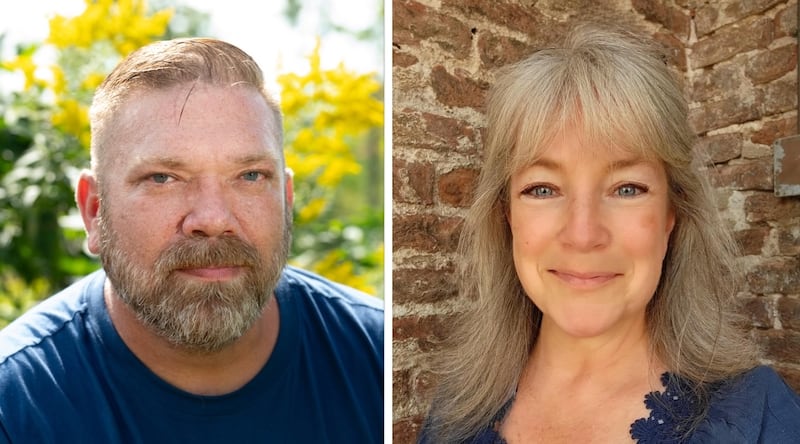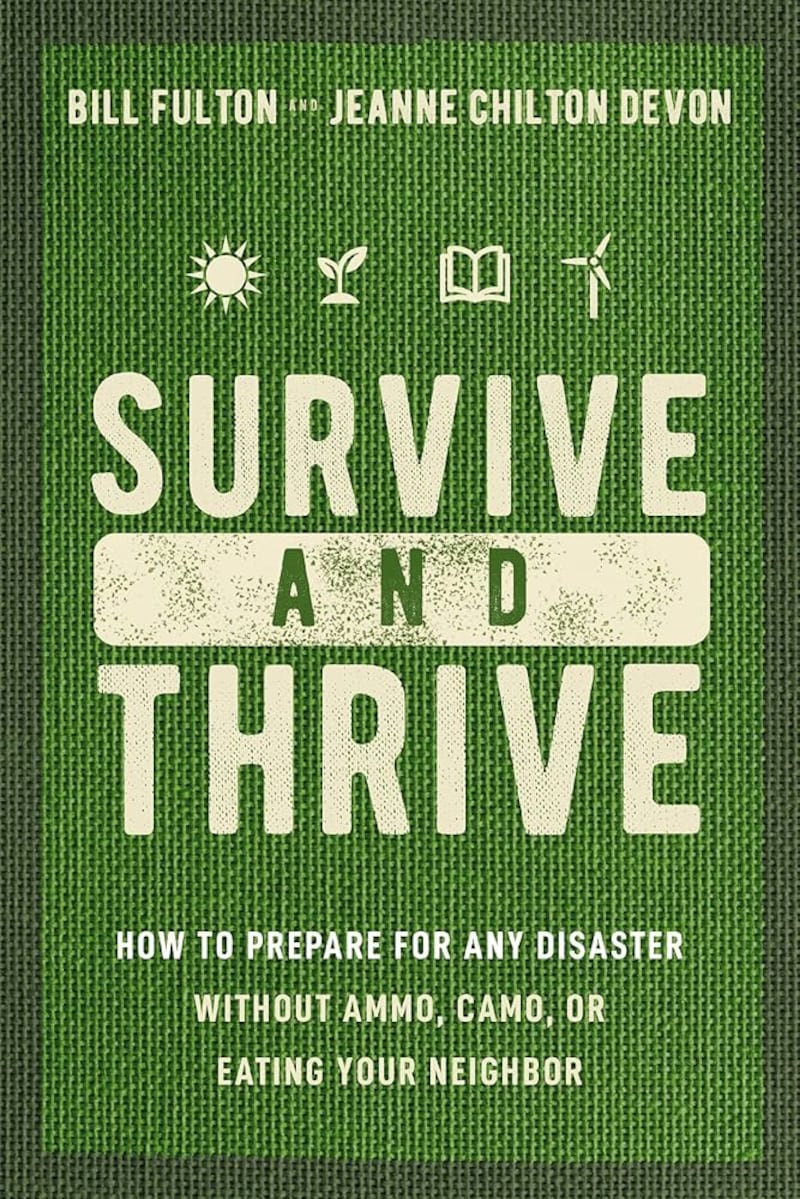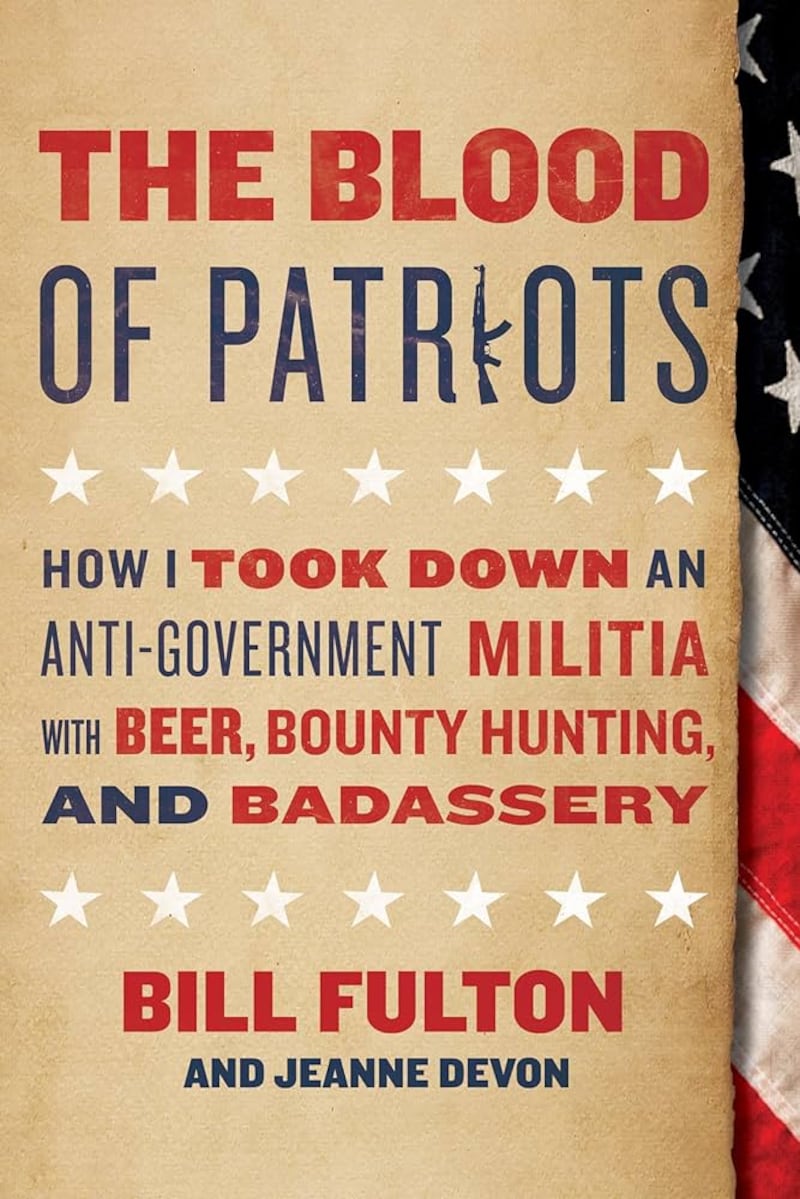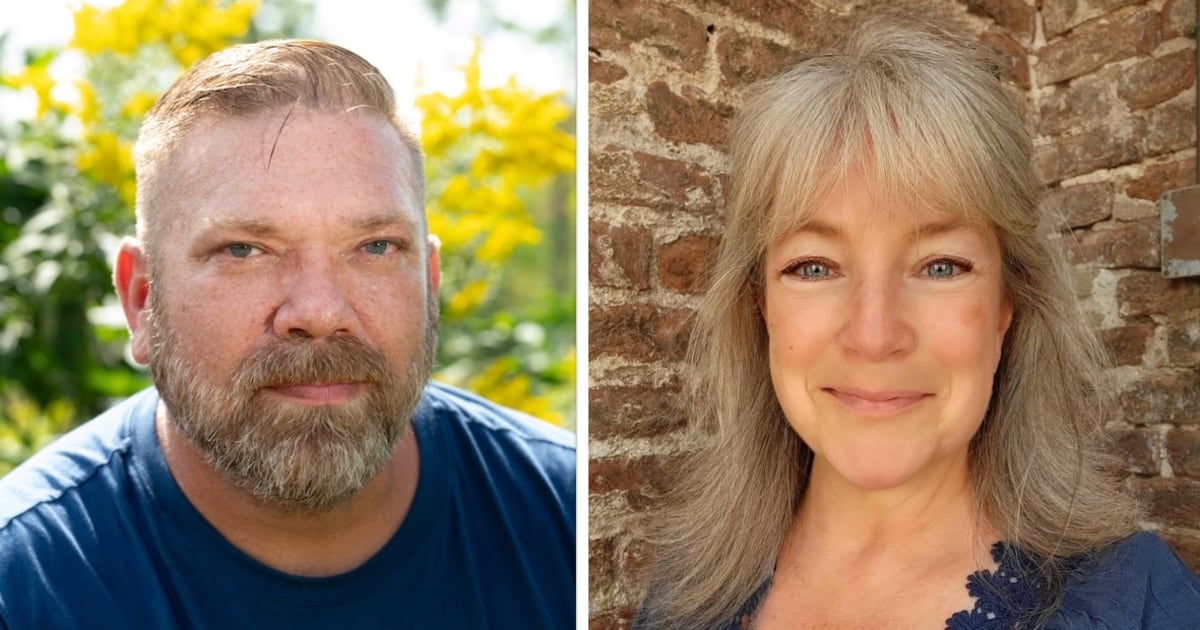 Authors Bill Fulton and Jeanne Devon (Photos provided by Bill Fulton and Jeanne Devon)
Authors Bill Fulton and Jeanne Devon (Photos provided by Bill Fulton and Jeanne Devon)
This is part of Alaska Authors, an occasional series about authors and other literary figures with ties to the 49th state.
When Bill Fulton pitched a book about surviving major crises to his agent, he was told the publishing industry is already awash in tomes aimed at people building backyard bunkers.
“I don’t know if it’ll be that successful,” the agent said. “Because there’s a ton of survival books out there.”
Fulton had his answer prepared. “Yes, but we’re not crazy.”
That’s the attitude Fulton, along with longtime Alaska political observer and reporter Jeanne Devon, brought to “Survive and Thrive.” It’s a book for everyday people about successfully weathering unexpected events ranging from natural disasters to food supply disruptions to political upheavals and more.
“We approached it from that standpoint,” Fulton explained. “It’s written for everyone.”
Fulton and Devon are longtime friends who collaborated on a previous book, “The Blood of Patriots,” which followed Fulton’s trajectory from Montana farm boy to the Army, and then becoming owner of Drop Zone, a military surplus store in Anchorage. It was while there that he became an FBI informant and key witness in the federal trial of Schaeffer Cox, a sovereign citizen and militia leader from Fairbanks who was convicted in 2012 on firearms and conspiracy charges.
Cox fits the stereotype of what are commonly known as preppers, those who load up on guns, dried food and survival gear, ready to stand alone in a doomsday situation. Devon, however, said this is the wrong way for anyone hoping to protect themselves and their loved ones if the worst occurs.
In actual practice, she said, the biggest factor in surviving a serious crisis involves fostering strong community ties so that everyone can pool their abilities for mutual benefit. This requires having “people who can rely on you and your special skills. People that you can rely on for their special skills. Creating a community network rather than being a lone wolf who says, ‘Anybody comes for my whatever, I’m going to shoot them.’ ”
In other words, “Survive and Thrive” is about collective survival, not personal hoarding.
“We talk a lot in the book about self-sufficiency,” said Fulton, who now operates a sustainable organic farm in Vermont. “Not just your self-sufficiency. We’re talking about self-sufficient communities. We’re talking about communities that have organic food systems, organic energy generation. And all of those things are good for the planet.”
Devon, currently residing in Germany, was living in Delta Junction when Fulton asked her to help write the book. Well experienced at gardening, fishing, food preserving, and other self-sufficiency skills, she was better prepared for the task than she initially realized. “You live in Alaska for 30 years, you know more survival stuff than you think you do.”

In aiming for general readers, Devon said, “the biggest challenge was to figure where we need to come to people from.” Rather than detailing what sort of arsenal is needed to survive, she and Fulton sought to get people started on befriending their neighbors and learning about gardening, foraging, power generation, water systems and more. From there they hope readers will seek out more in-depth sources. “We went for broad rather than deep. We went from an entry-level point.”
For Fulton, a big part of what he hopes to accomplish is getting people back to basics, recovering simple life skills that have been widely forgotten since World War II owing to the increasing conveniences of modern life.
“We went from the Great Depression, where everybody had to learn how to do everything, to an age when people are unprepared to help themselves,” he said. “So another part of the book is getting people interested in building these skill sets so that we don’t lose them.”
Back in the aughts, when Fulton owned Drop Zone, he found himself catering to the sort of survivalists he considers sketchy and more interested in amassing weapons than cooperating with others. It was there that he first encountered Cox, who at the time was making headlines in Fairbanks with his militia activities and gun rights advocacy.
Fulton said he initially contacted the FBI about a customer he thought might be violating federal laws. That’s when he was asked to gather information on Cox, already flagged by the agency due to increasing evidence that his activities had crossed over into illegality.
“My country asked me to do something. So I did it,” Fulton said about his decision to cooperate with the authorities. “I raised my hand when I was 17 years old and told my country that I would do anything they asked me to do against all enemies foreign and domestic.”
After Cox’s 2011 arrest, his widely publicized trial took place in Anchorage the following year. At the time, Devon, an East Coast transplant, was running a popular left-leaning blog called The Mudflats. Fascinated by the story, she was in the courtroom daily, posting detailed summaries. Her efforts turned Mudflats into a full-fledged news source with arguably the most comprehensive information to be found on the proceedings.
“It fascinated me because it was an examination of the First Amendment, Second Amendment, Fourth Amendment. It was a microcosm of all kinds of interesting legal questions that I was curious about,” she said, adding: “There was a cast of characters that you could not make up if you tried.”

After the conviction of Cox and his accomplices, Fulton, by then in the witness protection program, decided to write a book about his life and involvement as the star witness against the defendants. Devon, meanwhile, also saw a book in the story. After a couple of post-trial interviews, they decided to collaborate.
Fulton provided the details while Devon added context by placing the events in the broader historical and cultural landscape of Alaska. Along the way, she and Fulton developed a strong friendship built on mutual trust.
This, and a shared sense of dark humor, are what fueled “Survive and Thrive.” Motivated by concerns about the impacts of climate change, tenuous supply chains revealed during the pandemic, increasing global political and economic instability and other potential calamities, they wanted to leave readers well-informed rather than scared.
Fulton, with his military background, knew that in a crisis situation, “your biggest tool is the one between your ears. You have to stay calm. You have to think rationally. You have to be confident in the decisions that you’re making.”
Devon added that this requires remaining positive. “You have to be hopeful. You have to treat this as an exercise in empowerment against odds.”
To that end, “Survive and Thrive” teaches readers basic survival skills while, Devon said, making it “interesting enough, funny enough and amusing enough that people will actually want to read it.”
Fulton pointed out, “Most of the survival books out there, they’re very doom and gloom. They’re very fear-based. I don’t want to be leading people down a path to paranoia and fear. What I want them to do is feel accomplishment and feel happy and feel that they have this down and have confidence.”
To this Devon added, “I feel like each person that reads the book is like the little pebble in the pond. And the ripples go out. That’s my dream for it.”
